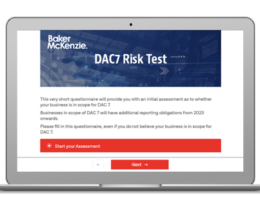The EU Carbon Border Adjustment Mechanism (CBAM) Regulation entered into force on 17 May 2023 and will take effect from 1 October this year with a transitional phase that lasts until the end of 2025.
In preparation for its introduction, on 13 June 2023, the European Commission published a first call for feedback on the rules governing the implementation of the CBAM during its transitional phase.
On 10 May 2023 the Council of the European Union and European Parliament signed the regulation implementing the EU Carbon Border Adjustment Mechanism (CBAM). CBAM will enter into force twenty days after it is published in the Official Journal of the European Union.
Carbon tax was introduced in 2019 to assist South Africa to deliver on commitments made in the Paris Agreement in 2015. This tax is expected to increase in the years ahead, and carbon-intensive businesses have spoken out about the negative impact of this tax on their bottom lines, especially as they continue to recover from the pandemic and invest in energy transition infrastructure. As the clean energy industry grows, so does the need for specific incentives or legislation to deal with certain spin-offs from the measures introduced to reduce exposure to carbon tax. As such, more policies that incentivize the reduction of carbon emissions and the transition to clean energy are likely to be announced in the coming years.
The Annual Compliance Conference begins next week and attracts over 6,000 in-house senior legal and compliance professionals from across the world. This leading compliance conference will be held across five weeks from 6 September – 6 October 2022. We will be virtually delivering our cutting-edge insights and guidance on key global compliance, investigations and ethics issues. Our global experts will provide practical insights and analysis on significant developments:
• anti-bribery
• corruption and economic crime
• customs and FTAs
• ESG, supply chain and product compliance
• antitrust and competition
• export controls, sanctions and foreign investment
Click here to view the full agenda and register your interest in joining us virtually at this must attend global compliance conference for senior in-house legal and compliance professionals.
Annual Compliance Conference
Our popular Annual Compliance Conference, which attracts over 6,000 in-house senior legal and compliance professionals from across the world, will be held across five weeks from 6 September – 6 October 2022. We will be virtually delivering our cutting-edge insights and guidance on key global compliance, investigations and ethics issues. Our global experts will provide practical insights and analysis on significant developments across:
– anti-bribery
– corruption and economic crime
– customs and FTAs
– ESG, supply chain and product compliance
– antitrust and competition
– export controls, sanctions and foreign investment
Click https://www.bakermckenzie.com/en/insight/events/2022/10/annual-compliance-conference to register your interest in joining us virtually at this must attend global compliance conference for senior in-house legal and compliance professionals.
In March 2021, the EU approved new reporting rules in a directive known as DAC7. The directive will require the operators of online platforms for the sale of goods and certain services, to collect, verify and share data on their sellers and their transactions concluded on the online platform. EU member states have until 31 December 2022 to implement DAC7 into national law. Certain platform operators will become a reporting platform and will need to start collecting and verifying data points in compliance with the DAC7 reporting requirements. The collected data points must be reported to the tax authorities of the relevant EU member state annually.
On 11 March 2021, the Court of Justice of the European Union issued its ruling in case C-812/19. The case concerned the VAT treatment of the supply of services from a head office, which was part of a VAT group in Denmark, to its branch in Sweden.
In brief On 26 February 2021, the new Tax Convention for the Elimination of Double Taxation signed between Spain and Japan (“New Tax Convention”) was published in Spain’s Official State Gazette. The New Tax Convention is generally aimed at adapting its previous version to the most recent standards issued by…
On 1 January 2021, the UK left the EU VAT regime. Although the UK has retained a VAT system, it now operates on the basis that it is a third country (with the exception of goods supplied to and from Northern Ireland (“NI”), which continue to be treated as intra-EU trade for VAT purposes).
The UK Government’s agreement of the Trade and Co-operation Agreement with the EU does not change the VAT position. The TCA contains minimal provisions relating to VAT and with the exception of NI trade in goods, the UK is in most respects expected to be treated as any other third country for VAT purposes.
Spain has published the Law transposing Directive DAC 6, which will come into force on 31 December. However, in line with EU legislation, it provides for a transitional regime for arrangements for which the first stage of implementation took place between 25 June 2018 and 30 June 2020. In addition, it also applies to cross-border arrangements that have been subject to the obligation (not just to implementation) from 1 July 2020.
Implementing legislation is yet to be published, but it is expected soon, when a number of administrative reports on these rules are finalized.








